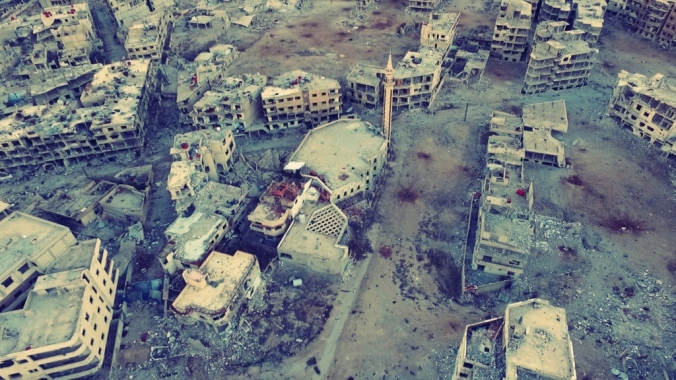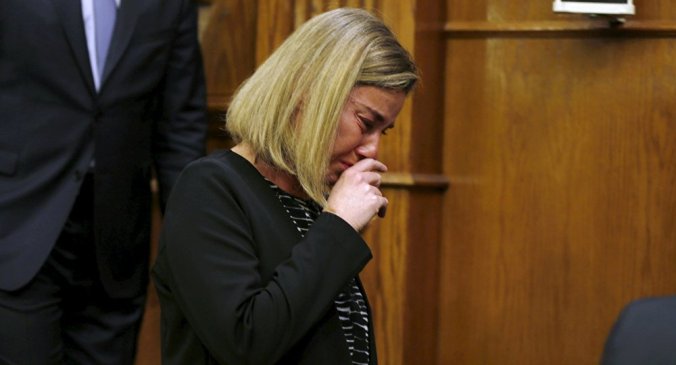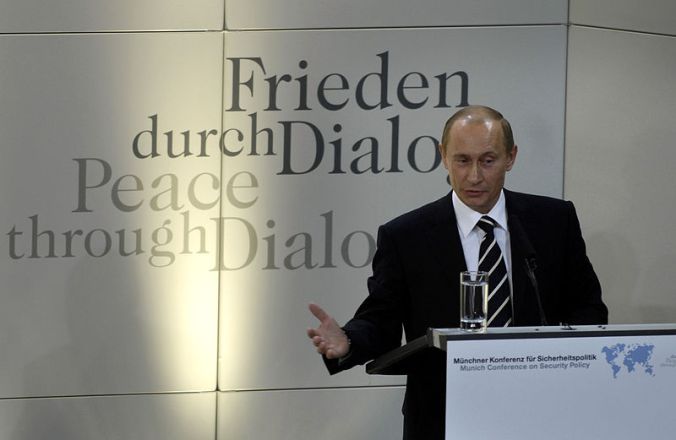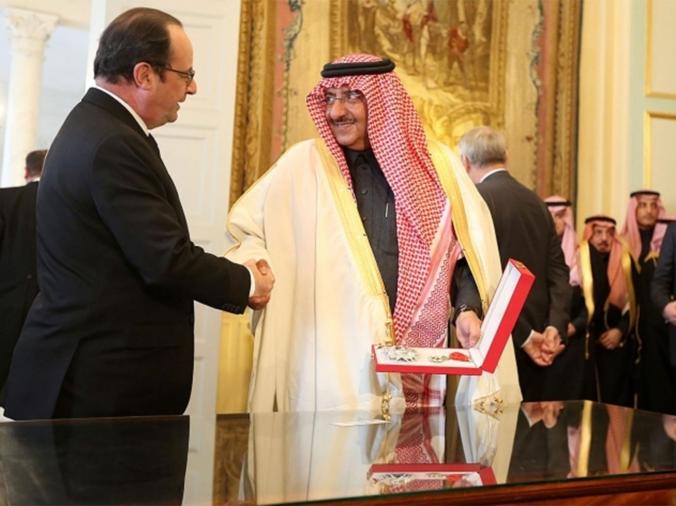Instead of the triumph of democracy and progress, we got violence, poverty and social disaster — and nobody cares a bit about human rights, including the right to life. I cannot help asking those who have forced that situation: Do you realize what you have done?
-Vladimir Putin addressing the United Nations in September 2015.
March 22, 2016 entered contemporary history as another day made dark by a new terrorist act in Europe. This time it took place in Brussels, Belgium roughly following the general pattern of its Parisian predecessor in late 2015 by targeting multiple heavily populated areas: a major metro station and the city’s airport. These violent acts resulted in dozens of deaths and hundreds of injuries and were later attributed to the so-called Islamic State terrorist group, although at the time of writing the criminal evidence is just making its way into the media.
SYMBOLS OF EUROPEAN POSTMODERITY
Whereas some described the Paris attacks as targeting the very heart of European culture and civilization, the 2016 bombing of Brussels symbolizes the war against the capital of the European Union and all it represents, as well as the NATO headquarters, the most powerful military alliance in the world. Indeed, border closures alone in the wake of such crises undermine the very idea of this Union and thus send a strong message. Terrorism’s raison d’être is to cause maximum disorientation and fear among the civilian population, which is why, it seems, the perpetrators chose public spaces rather than government buildings.
Certain commentators have even noted that the attacks took place close to Easter, according to the Gregorian calendar, thus framing this as a Huntington-style clash of civilizations, Islam and Christianity. However, reducing such scenarios to the Islamic factor alone is as simplistic as the other side of the coin—negating any connection to Islam or the MENA region. As any living religion, Islam is malleable, and a very particular fundamentalist—Wahhabist and Salafist brand—currently provides the dangerous ideological framework to those radically rejecting the status quo represented by the internal problems in the Middle East combined with Western meddling.

Darayya, Damascus, Syria, 2016. Source: Russia Works.
Much like the Paris attacks, the Brussels bombing was born of a lethal mix of spearheading globalism at home and abroad, often described as “invade the world, invite the world.” Europe’s domestic suicidal tolerance and open borders fused with seemingly neverending Washington-led ‘humanitarian interventions’. The so-called Old World has been able to enjoy the lull of relative prosperity for several decades after the Second World War. This, in part, left it with a false sense of security and moral superiority.
This full-bellied sentiment is combined with a profound philosophical crisis, in which Europe rejected what made it Europe—for millennia—in the first place: both the last vestiges of socio-cultural institutions of historic Christianity along with rootedness for its indigenous peoples. Yet it also failed to find an adequate replacement, a new raison d’être.
After all, the West’s chosen ideology of Liberalism—focused on the individual free of all traditional ties—dictated abstract niceties of vague European values defined by civic duties for interchangeable autonomous human units from any part of the world, high tech, anything-goes moral decadence, stifling political correctness, and the proverbial bread and circuses. It is no wonder that Europe has been unable to absorb its immigrant populations, and instead the immigrant populations began to fill this amorphous, rose-colored vacuum with their own beliefs and demands.
MOGHERINI’S TEARS OF A FAILED FOREIGN POLICY
Commenting on the Brussels terrorist attack on a visit to Jordan, Federica Mogherini, the face of the European Union’s foreign affairs, broke down in tears. This spontaneous reaction speaks of EU’s failed foreign policy, though, of course, European officialdom does not seem to realize its extent.

Federica Mogherini breaks down when commenting on Brussels attacks. Source: Reuters / Muhammad Hamed.
Nearly three decades of unchallenged Washington hegemony have largely been parroted by the official route of the European Union, especially since the swan-song opposition to the Iraq war in France and Germany. This era has largely been disastrous, leaving entire states and regions in collapse, and displacing millions of people, in the Middle East and North Africa to Ukraine, all the way to Afghanistan.
One of the biggest lessons that Russia has attempted to convey to Western officialdom at large is to stop employing double standards when dealing with terrorism. Openly funding or tacitly supporting terrorists in places like Syria to achieve regime change perceived beneficial to one’s geostratetic goals may lead to grave consequences. In the words of certain Russian analysts, the genie of the so-called Islamic State was—eventually—released from Colin Powell’s vial used to justify the Iraq invasion and resulting in the subsequent collapse of that country. This, of course, is the policy that Washington has pursued against the Soviet Union since working with militants in Afghanistan in the 1970s: before the Soviet Union even entered that country.
And let’s say things as they are – one hand distributes charitable help and the other hand not only preserves economic backwardness but also reaps the profits thereof. The increasing social tension in depressed regions inevitably results in the growth of radicalism, extremism, feeds terrorism and local conflicts. And if all this happens in, shall we say, a region such as the Middle East where there is increasingly the sense that the world at large is unfair, then there is the risk of global destabilisation.
-Vladimir Putin’s Prepared Remarks at the 43rd Munich Conference on Security Policy, February 2007

Vladimir Putin at the 43rd Munich Conference on Security, 2007. Source: US Department of Defense.
These double standards are even worse when one considers the way the mainstream Western media covers, ignores—or refers to the perpetrators as ‘insurgents’—terrorist attacks in other parts of the world from Lebanon to Mali and, yes, Russia. The logic behind such coverage assumes that it is normal for these acts to be part of daily life outside the West. Of course, it is expected that the Western public would concern itself with its immediate surroundings, first and foremost. Yet there is a significant lack of foresight in terms of recognizing the common source of the recent rise of global terrorism, and even language choice demonstrates this problem.
THIS IS WAR
Continued destabilization of the Middle East and North Africa by the official West brought bona-fide war to the European soil: 1) there are small, well-organized, militarized groups that carry out attacks in various European cities; 2) there is a large flow of foreign peoples with a significant percentage of fit, healthy, military-aged men, both as a result of displacement from their war-torn homes, as well as opportunism (and worse); these peoples become weapons of mass migration; 3) the opportunistic contingent of this migrant flow acts like military invaders, from imposing their own ways onto the local populations to even raping their women.
On practical terms, Brussels attacks reveal major holes in EU’s security: perpetrators carried out multiple acts of terror in different parts of a large European city, following the Paris blueprint, despite the fact that Brussels has been on higher alert since late 2015 and, indeed, shortly after the capture of the alleged Paris-attacks mastermind. Worse yet, one of the suicide bombers is said to have been a known militant deported from Turkey back to the European Union last year.
As NATO keeps hyping the ‘Russian threat’, and its biggest funding contributor, U.S., seeks to quadruple its defense budget in Europe to secure EU’s exterior borders from perceived ‘Russian aggression’, the EU has proven incapable both in screening potential perpetrators and preventing major terrorist attacks at home.
While [NATO’s] Stoltenberg is busy battling a phantom ‘Russian threat’ by putting troops in Latvia, people get blown up right under his nose in Brussels.
– Alexey Pushkov, Russia’s Head of the Foreign Affairs Committee of the State Duma
HELPING ENEMIES, SANCTIONING FRIENDS
Russia would be a natural partner to Europe in combatting terrorism. Beyond geographically sharing a part of the continent, Russia has many historic similarities with Europe: Greek philosophy, Roman law, Christian civilization, not to mention common ancestry with much of its population. Equally important, Russia is no stranger to suffering from terrorism: from the bombing assassination of a tsar and state officials in the late 19th-early 20th century by diverse leftists groups to the second Chechen war of the early 2000s, which involved militants from 51 countries, not unlike today’s Syria. Russia’s recent experience in combatting terrorism at home—and now in the Middle East—would be useful to Europe. This is why as early as 2007 Putin proposed collective security to Europeans in Munich, albeit to no avail.
Moreover, significantly new threats – though they were also well-known before – have appeared, and today threats such as terrorism have taken on a global character.
I am convinced that we have reached that decisive moment when we must seriously think about the architecture of global security.
– Vladimir Putin’s Prepared Remarks at the 43rd Munich Conference on Security Policy, February 2007
Instead, in the last number of years, European officialdom has focused on subordinating its own interests to those of Washington through economic sanctions and hysterical propaganda campaigns against Russia reaching hyperbolic levels, rather than seeking mutually beneficial points of contact, like those in the field of security and counterterrorism.

Francois Hollande gives the Legion of Honor award to Saudi prince Mohammed bin Naif. Source.
At the same time, Western officialdom has consistently maintained good relations with known state sponsors of terrorism in the Middle East and beyond, such as Saudi Arabia and Turkey. In the case of Saudi Arabia this has become caricaturesque, including leading the UN Human Rights panel and receiving the Legion of Honor award for ‘combatting terrorism’, all in the last six months. Worse yet, European leaders have been playing nice with Turkey, a NATO member, and even a potential addition to the Union. Indeed, Brussels bombing came only a few days after the EU is said to have poured €6 billion into Turkey—another bandaid solution instead of fundamentally rethinking one’s foreign and domestic policies.
WHAT IS TO BE DONE?
“What is to be done?” is often described as a key Russian question. Yet, in this case, it is Europe that has to ask itself how to proceed. One of the greatest dangers here is that the now-obvious security vulnerabilities would subordinate Europe to Washington’s ‘Euro-Atlanticism’ even further—without Washington changing its own modus operandi of perpetual chaos that has led to this predicament in the first place. It is equally obvious that Europe will have to make tougher decisions than throwing money at Turkey’s Erdogan in hopes that the problem it created just goes away. And when Europe is ready, Russia will be there to help, as the offer always remains open.
Well said and astute observations. Glad I came across your site.